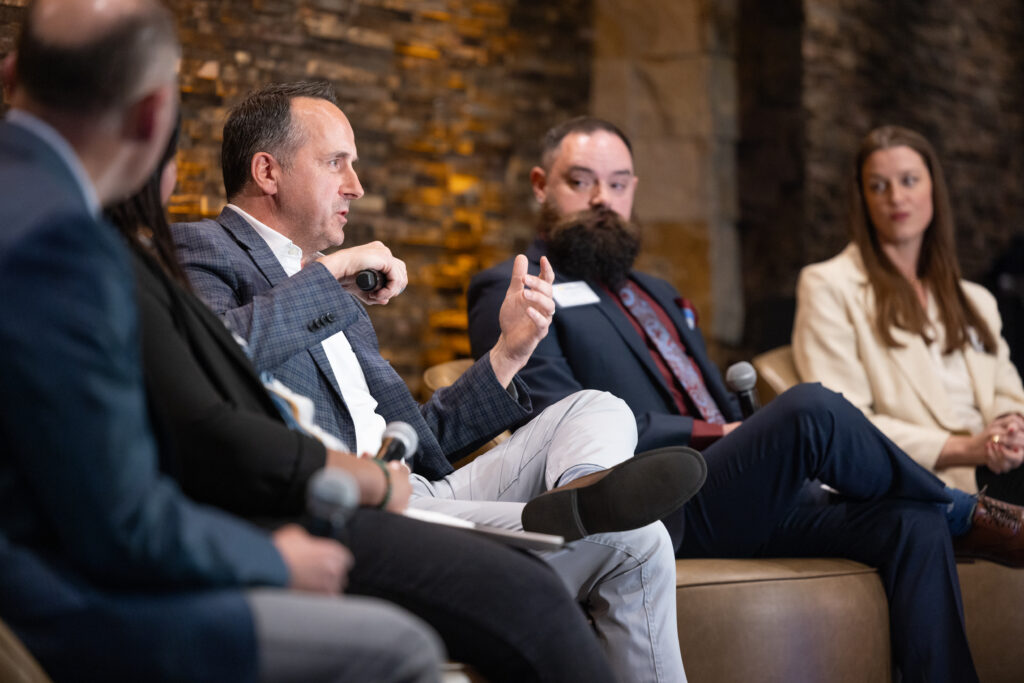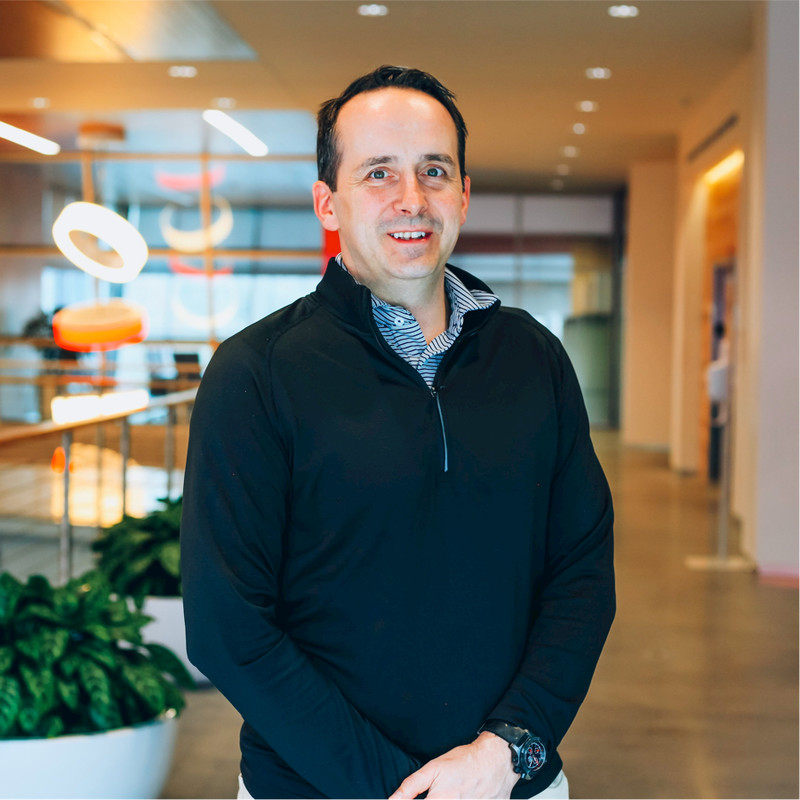The Healing Power of Shared Lived Experiences: Why Peer Support Matters
by Scott Kelsey, One Mind Lived Experience Council Member

For much of my life, I tried to carry everything on my own – my anxiety, my depression, and the invisible weight of a traumatic brain injury that left me feeling fractured and alone. I told myself to push through, to tough it out. I believed I had to manage it all in silence. But the truth was, I was suffering. I didn’t need more willpower. I needed connection.
A good friend of mine suggested I reach out to another local friend, who, unbeknownst to me, had suffered a TBI years ago. We sat for coffee one day, I shared what had happened and what I was going through and also what my fears were at the time. He sat, listened, and then he shared his story.
As I listened to what he had been through, and what he had learned along the way, I immediately felt a sense of calm. He experienced similar thoughts, feelings, and struggles and by sharing these with me, it provided me with a sense of comfort. When we were leaving, I thanked him for his time, and his reply, which really struck me at the time, was simply (yet powerfully): “It helps me too.”
We kept in touch and I began to find other local and virtual peer support groups, not only for my brain injury, but also for my overall mental health and wellness.
While attending these various peer support groups, I experienced something I hadn’t felt in a long time: safety. These weren’t therapists or experts. They were people like me. People who had been knocked down, had struggled in the dark, and had found their way – imperfectly, honestly – toward something better. They didn’t try to fix me. They simply listened. And that changed everything.
How Shared Experience Heals
There’s a unique kind of comfort in knowing you’re not alone. When someone says, “I’ve been there,” it cuts through the isolation. You don’t have to explain every detail or justify how hard things have been. You just show up as you are, and that’s enough.
Psychologically, this kind of connection is powerful. It lowers stress, quiets the inner critic, and softens the nervous system’s fight-or-flight response. In that space of mutual understanding, I found myself beginning to breathe easier. To open up. To heal.

The Safety of “Me Too”
In peer support spaces, there’s an unspoken promise: this is a place where your truth is welcome. There’s no pressure to have it all together. No stigma. Just presence. When I talked about my anxiety, others nodded – not out of pity, but recognition. When I shared about my depression or the fog that followed my brain injury, I wasn’t met with confusion or discomfort; I was met with understanding. That feeling of “me too” made all the difference. Over time, I learned to trust again. To believe that my struggles didn’t make me weak; they made me human. And that being vulnerable wasn’t something to fear; it was a doorway to connection.
Still Healing, Still Showing Up
I don’t tell this story as someone who has it all figured out. Healing isn’t a destination. It’s an ongoing journey. I still have hard days. I still need people who get it. But now, I don’t carry it all alone. I continue to find strength in peer support communities, and I try to offer that same support to others when I can.
There’s something sacred about being with others who truly see you – not despite your pain, but because of it. In those moments, we’re reminded that we don’t have to be perfect to be worthy of love and connection. We just have to be honest. We just have to be willing to show up.
Recently, one organization I’ve found and helped to spread deep peer connections has been One Mind, with its Lived Experience Council. My involvement thus far with the Council has been nothing short of amazing. It has allowed me to work directly with others on the Council who are all open and honest about their life challenges. Through our discussions and work we gain a better understanding of how we can collectively help others understand the tremendous amount of benefits that can come from sharing our stories and journeys, guiding them and providing support on how they can best share theirs.
The Quiet Power of Peer Support
Peer support is more than conversation; it’s a quiet revolution. It reminds us that healing doesn’t always come from clinical breakthroughs or big “aha” moments. Sometimes, the most profound healing unfolds in simple, human exchanges: a story shared, a moment of pain witnessed, or the presence of someone who simply says: “I get it.”
This belief is what led me to create Shareapy – a platform built to harness the power of shared lived experiences. It’s a space where people can connect, feel seen, and support one another through life’s ups and downs. The journey of building Shareapy has been deeply personal, and it continues to be shaped by the real, raw, and honest connections happening every day.
We know we’re not the only ones doing this work, and that’s something to celebrate. It’s inspiring to see other platforms and communities emerging that recognize the value of peer support. Together, we’re creating a culture where healing is communal, support is accessible, and no one has to walk alone.
Please remember – if you’re struggling or at times feel overwhelmed by life, know this: you’re not alone. You don’t have to carry it all by yourself. Somewhere out there is someone who has walked a similar path—and when your paths cross, healing becomes possible.
Because being seen, heard, and understood isn’t just comforting, it’s life-changing.
